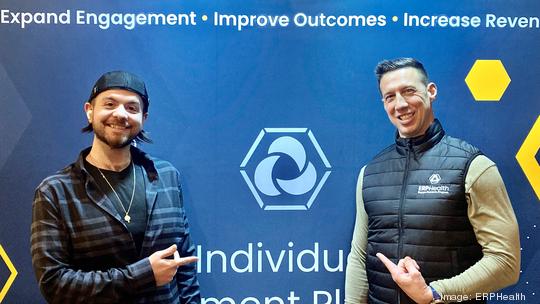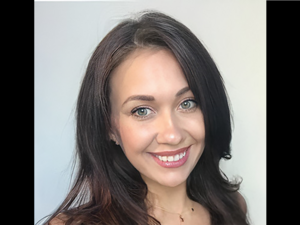
PHL Inno's weekly "Startup Spotlight" feature highlights founders and new businesses cropping up in the region.
The startup: ERPHealth is an individualized treatment platform for patients in addiction treatment and mental health centers.
Founded: 2019
Home base: Philadelphia
Founders: CEO Eric Gremminger and President Nicholas Bardoutsos.
Gremminger said his journey to founding ERPHealth started in August 2010 when he hit a personal bottom struggling with addiction. Homeless and on a bench outside Philadelphia’s City Hall, something shifted in him that day, and he began the process of long-term recovery. Along the way Gremminger became a licensed clinician and holds a degree in psychology from Drexel University.
Gremminger wanted to solve some of the problems he experienced when he went to treatment centers. That included ensuring that patients are getting individualized treatments and that clinicians have a way to stay in touch with their patients after leaving facilities.
“Even as I worked in busy clinical settings as a clinician, you can have really great clinicians, but it could be very difficult to personalize care,” he said.
The co-founders met while Gremminger was testing an analog version of ERPHealth's system at a Cherry Hill, New Jersey, clinic that Bardoutsos partly owned. Bardoutsos, a graduate of Temple University, is a program engineer and saw an opportunity to scale the ERPHealth program into a technology platform that could integrate with clinicians' software.
The product: Tap is ERPHealth's flagship product. The HIPAA-compliant app can be used on any device, including a tablet that ERPHealth provides to clinics, which is then given to a patient after they check into a facility. Tap asks patients to answer a series of questions to measure anxiety, depression, trauma, quality of life and other behavioral health issues, which is then delivered to physicians to form a primary diagnosis.
Creating treatment plans that account for co-morbidities and conditions is difficult to do under the traditional interview style model that many facilities use, Gremminger said.
“What we're looking to do is really identify the individual needs of each patient and a behavioral health that it's so complex,” Gremminger said. “There's no two patients that are the same.”
ERPHealth also offers a post-treatment platform called Gro, designed for clinicians to measure patient progress. Gro is available on a web-based app
Health care providers can then assess their patients' progress and trends in ERPHub, a dashboard that tracks self-reported patient data.
Funding: ERPHealth is in the middle of raising a $2 million seed round for operations and product development, Gremminger said. The startup has raised about $1.5 million so far from friends, family and angel investors.
ERPHealth has been growing quickly — with revenue increasing from nearly $1 million in 2020 to about $3 million in 2021 — and it now works with 20 treatment centers across seven states. The startup’s employee count rose from two to 15 last year.
The company’s ability to track patient outcomes has been helpful to both patient families and to facilities that work with health insurers that have a value-based care model, Gremminger said.
“A lot of centers see the value in our system and how they can leverage what we have to get better rates,” he said. “Because at the end of the day, helping people is good for business and we try to promote that as often as we can.”
The goal: ERPHealth is building in technology that ensures patients check in on the platform instead of dropping out of addiction recovery, Gremminger said. The startup’s outreach team checks in at certain benchmarks, from 72 hours to 30 days to one year.
Gremminger hopes that with ERPHealth’s increasing availability it can help to improve treatment and reduce overdose deaths. There were more than 100,000 overdose deaths in the United States in the 12-month period ending in April 2021, according to the Centers for Disease Control and Prevention.







